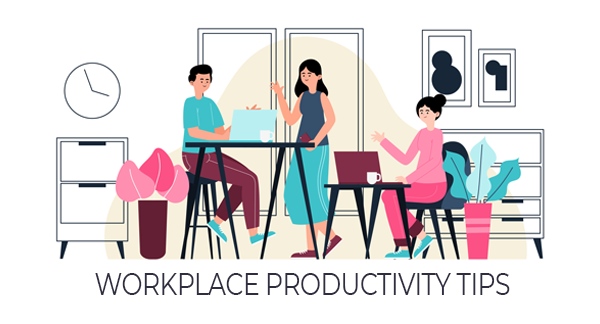Why Does Working Fewer Hours Increase Productivity?

Working fewer hours, as counterintuitive as it may seem, can actually increase your productivity by allowing you to: Improve your prioritization skills. Stop putting things off. Feel better.
There’s no way about it: you’ve got a lot on your plate. Emails must be answered, meetings must be attended, tasks must be completed, and deadlines must be met. Just thinking about the long list of must-dos that hangs over your head causes you to break out in a sweat.
You’ve determined that the only way out is through, so you’re going to put in long hours until you’ve completed everything on your to-do list. You’ll forego your lunch break, do a few all-nighters, and even work on weekends.
That logic appears to make sense on the surface. It’s natural to believe that sticking to a strict work schedule boosts your productivity. Isn’t it true that if you work more, you’ll get more done?
That’s not the case. As contradictory as it may seem, some evidence suggests the converse is true: working fewer hours increases productivity.
When you work more than 50 hours a week, according to a Stanford University study, your productivity levels plummet. And what if you work past the age of 55? Your productivity is so low that the extra hours you put in aren’t even getting you anywhere. According to the study, persons who worked 70 hours per week got the same amount of work done as those who worked 55 hours.
Huh? I’m not sure how that’s possible. Let’s take a closer look at this concept so you may accomplish more in less time.
4 reasons your productivity increases when you’re on a tight schedule
Long hours in the office have become the norm for decades. In fact, since 1979, the average workweek in the United States has climbed by 9%.
It turns out that we’re all going in the wrong way. Limiting the amount of time we spend on work duties can help us increase our productivity significantly. The following are four reasons why.
1. You’re more effective at prioritizing
On a Monday morning, you sit down at your desk. You know you’ll be working for at least 10 hours that day, not to mention the remainder of the workweek ahead of you.
You build a to-do list and prepare to work hard. What’s the first thing you’re going to do?
If you’re like the majority of individuals, you’ll go straight for the low-hanging fruit. Because those are the easy wins, you’ll respond to emails or fill out your expense report. They don’t demand much pain, worry, or creative energy, and at the very least, you’re crossing a few things off your to-do list, right?
But here’s the thing: if you keep starting with the easy tasks instead of the most important ones, you’ll soon run out of time and energy.
This means you’ll conclude your workday or week without completing any of your most important tasks. And what’s worse? In the process, you’re jeopardizing your own learning, development, and even long-term performance.
In a Quartz piece, Corinne Purtill said, “In the short term, finishing relatively simpler jobs reduces workload faster.” “But by defaulting to jobs we’re confident we can complete, we forgo the chance to learn how to do more challenging ones effectively.”
This is supported by research. Doctors in an emergency room were studied in one study. The researchers discovered that as doctors’ workloads grew, they worked quicker, and they attributed some of this to the fact that doctors chose jobs that they could complete rapidly. But here’s the bad news: their output actually fell over time as they continued to choose the easier instances.
So, how does this relate to your working hours? When you know you only have a limited amount of time to get things done, you’re far more likely to prioritize well to maximize the time you have.
In short, you’ll feel a greater sense of urgency, so you’ll focus your efforts on the tasks that actually move the needle—rather than alphabetizing your files or watering your desk plants.
2. You’re less likely to procrastinate
Let’s speak about that sense of urgency component of the jigsaw a little further because it’s crucial.
Return to the following scenario: You’re well aware that you’ve got a 10-hour workday ahead of you. How eager are you to get to work and sit down at your desk right away? Because you believe you have lots of time, you probably don’t have much of a fire burning within of you. So you’ll get another cup of coffee, strike up a conversation with a coworker, and ease into your chores.
Consider the following scenario: You only have one hour between meetings to get everything done. You’ve probably been there, and I’m ready to bet you surprised yourself with how much you were able to do in those situations.
What’s the deal here? Why do you feel like you’re occasionally able to get more done in one hour than you would in an entire workday?
The quick explanation is that deadlines are extremely motivating. You’ll stop procrastinating and focus on getting as much done as possible when you know the conclusion of your work session is approaching like a rushing train.
When it comes to the effectiveness of deadlines, there are several psychological elements at play, but a lot of it boils down to the Yerkes-Dodson law, which claims that our performance rises as our arousal (read: stress) rises. To a certain extent, this is correct. Your performance will decrease if you are overworked.
You know you don’t have time to kill when you work shorter hours. You’ll be less likely to procrastinate if you have a tighter deadline (and a higher arousal level).
There is one caution, though: don’t let your sense of urgency lead you into the trap of merely checking off the easy chores we outlined before (this is known as the urgency bias). Regardless of how brief your work session is, make sure you continue to prioritize the most critical things first and foremost.
3. You’re less overwhelmed and stressed
Consider the last time you worked a tremendously long day. By the time it was over, how did you feel? Exhausted? Frazzled? Overwhelmed? Frustrated? All of the aforementioned?
It was undoubtedly difficult to generate the enthusiasm to keep producing when you returned to your work the next day—you were simply exhausted.
Long working hours, without a doubt, take their toll—mentally, emotionally, and even physically. In May of this year, the World Health Organization designated burnout as an “occupational syndrome.”
Your productivity, on the other hand, is a victim of your overworking inclinations. According to research, organizations with moderate to severe staff burnout saw a 22 percent drop in job performance.
Shorter work hours, on the other hand, allow employees more time to pursue their interests, spend time with their family, or do all of the above. And happiness has been shown to increase productivity. Happiness increased productivity by roughly 12%, according to research from the University of Warwick.
4. You’re able to maintain more focus
Even if you clock in for ten hours, you are unlikely to be working the entire time. Because our brains can only take so much extended concentrate, keeping focus is taxing (and attention spans can vary by person).
That definitely explains why those who work 70 hours a week don’t get as much done as those who work 55 hours.
You make it easier for your brain to stay focused on the subject at hand by giving yourself some mercy with shorter working hours. This has a variety of additional advantages, including increased precision and safety.
Working longer hours related to more errors in one research of doctors and nurses, while working long hours increased the likelihood of occupational injuries in another.
As a result, not only will you increase your productivity by focusing more, but you’ll also save time by avoiding the mistakes you’d make if your mental energy had run out.
More hours doesn’t necessarily mean a completed to-do list…
It’s tempting to believe that working longer hours automatically means getting more done. However, a large body of evidence demonstrates that this is not the case.
As counterintuitive as it might seem, working fewer hours can actually boost your productivity levels by helping you:
- Prioritize more effectively
- Stop procrastinating
- Feel happier
- Improve your focus
It’s no surprise that an increasing number of companies (and even entire countries) are adopting four-day workweeks and reaping the rewards. To give just one example, Microsoft’s trial of a four-day workweek in Japan resulted in a 40 percent improvement in productivity.
When it comes to showing your to-do list who’s boss, the adage seems to hold: it’s not the number of hours you put in, but the quality of those hours that will result in the greatest productivity payback.




